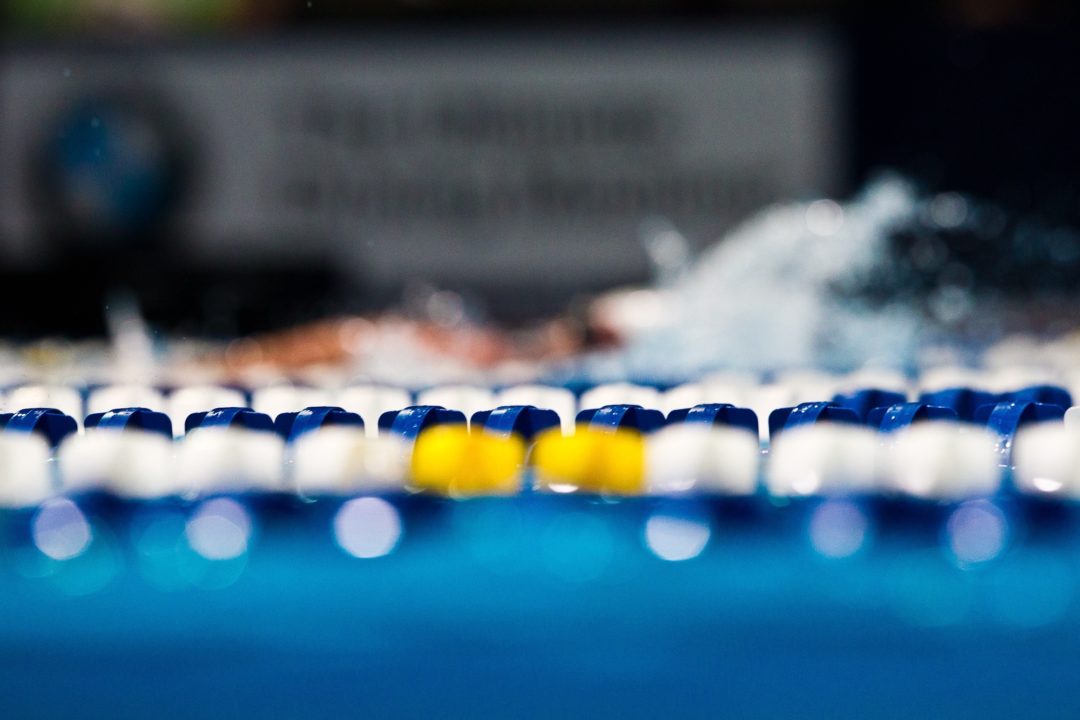Via SwimSwam contributor Chris O’Linger, an assistant coach at the University of the Incarnate Word.
Since the turn of the century, the number of athletes in competitive swimming has skyrocketed, yet there are too many programs that start up and decease within a few years.
Chris Hadden has experience opening up a successful club team in Ohio, the United Swim Association, after a four year retirement. Since his break from the swimming community, Chris had held a sales position, but was itching to get back into the sport. He decided to start up a 14 and under program, which eliminated some of his old prospects who he had developed to an elite level of competition. Chris struggled with numbers the first couple years, because of his program descriptions, regardless of his upstanding reputation. He didn’t want to overload his program with commitments, because he was unsure of his own personal level of commitment. This plays part in his program philosophy.
First and foremost, Chris explains that “pool and facility availability is one of the most prominent problems with unsuccessful or folding programs.” We will discuss financial stability and revenue in depth in part 2. Not pertaining to monetary measures, Chris’ philosophy is to create “a fun and successful environment, and to maintain that climate day in and day out.” Chris believes in a firm adherence to his mission statement, promoting goals and values that are of importance to him and his business. The key to his mission statement is to make it broad and generalized, because “competition is too high to have a ‘my way or the highway’ attitude” when speaking of keeping a positive environment amongst your staff and athletes.
Chris boasts an ability to remain “…pliable, flexible, and laid-back. It is too common to see coaches get lost in the rules. Stringency puts just as much of a strain on the staff as it does the athletes.” For example, Chris has no flat line attendance policy. This seems uncommon for many clubs, but he would rather not “lose his athletes.” Chris does not want the athletes, or the coaching staff, to carry any negative emotions into practice.
“My goal is to create a team climate where the values are displayed and learned. I feel [the values] are held in higher regard that way, than to force them down the athlete’s throats. I do not enjoy yelling, so I do not do it often. It is too easy to coach with emotion nowadays, but I choose to spark excitement, not drown them in politics.”
One of the things that separates Chris’ program from competitors is his promotion of a team atmosphere.
“Don’t get me wrong, I work with the athletes on an individual basis, but [the athletes] respond to a facilitated support system that spreads far beyond their parents and coaches,” boasts Chris. “We establish these support systems through evaluations of the team’s progress and parental/athlete’s outlook on the system in place. If we come to a consensus on how things should be, we will shift the values to create and maintain an atmosphere unrivaled in our [LSC].”
A lot of time and effort from Chris’ coaching staff aims toward allowing the athletes to develop into accountable teammates. This has wound up in a strong promotion for ‘training smart and correctly,’ facilitated heavily by their teammates. This relieves much stress from the coaches, allowing them to put more effort on the important semantic points of the sport, forging quicker improvement.
As far as staffing goes, Chris looks for three main things from his assistants:
1) reliability,
2) skilled when working with the youth
3) capabilities for learning
Chris likes to feel as if he could be absent from deck, and trust that what is needed to be done, is in fact being done.
“I’m not looking for someone to be [submissive], yet I do not want assistants that will contextually integrate his own programs and beliefs if they do not mesh with mine.”
Research has demonstrated that a congruency in style from colleague coaches will promote further improvement and understanding of sport from athletes, rather than two sound programs run independently, in juxtaposition. As stated previously, facility costs, maintenance, accountability, and marketing plays a huge role. This will be discussed in Part II coming soon.
Visit the United Swim Association here.
O’Linger is an assistant coach for the Incarnate Word swimming and diving program. He swam collegiately at both the University of Florida and University of Tampa. He earned a degree in social psychology from Tampa. He is studying kinesiology.



